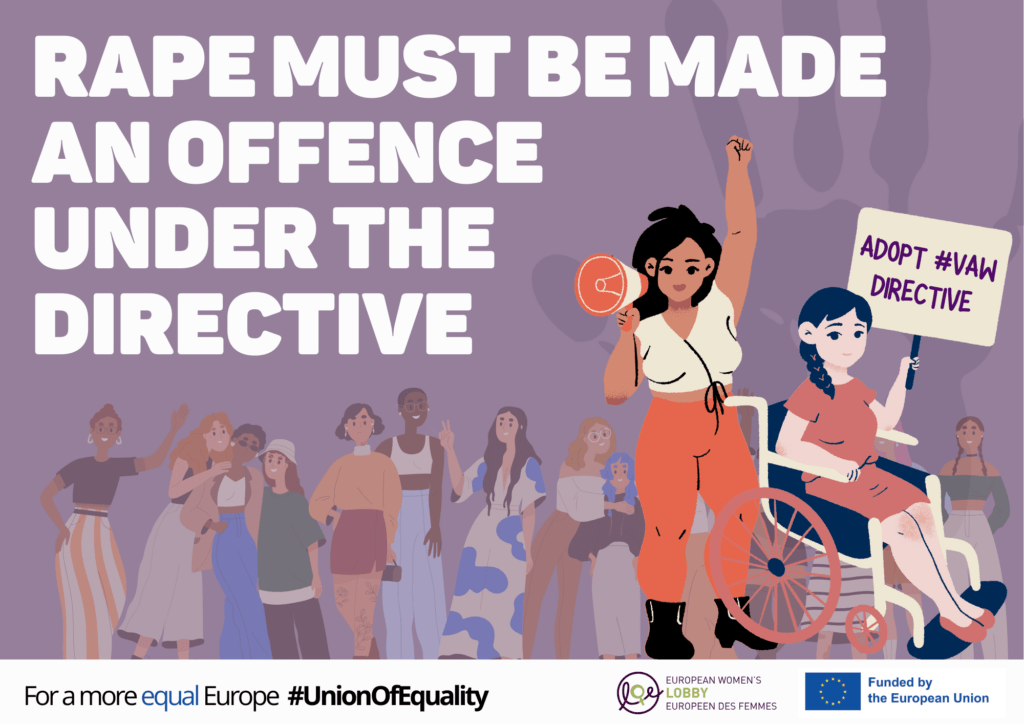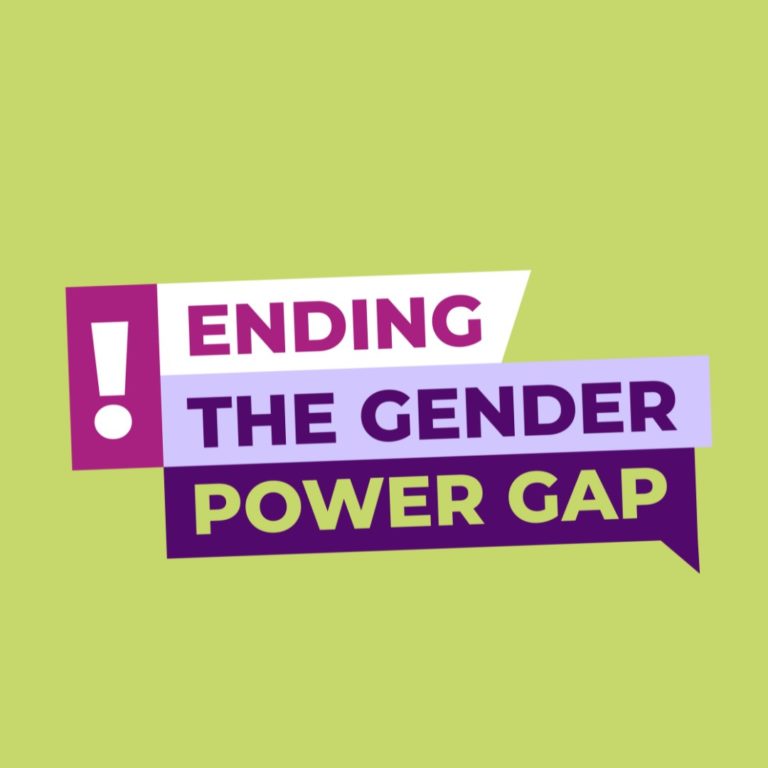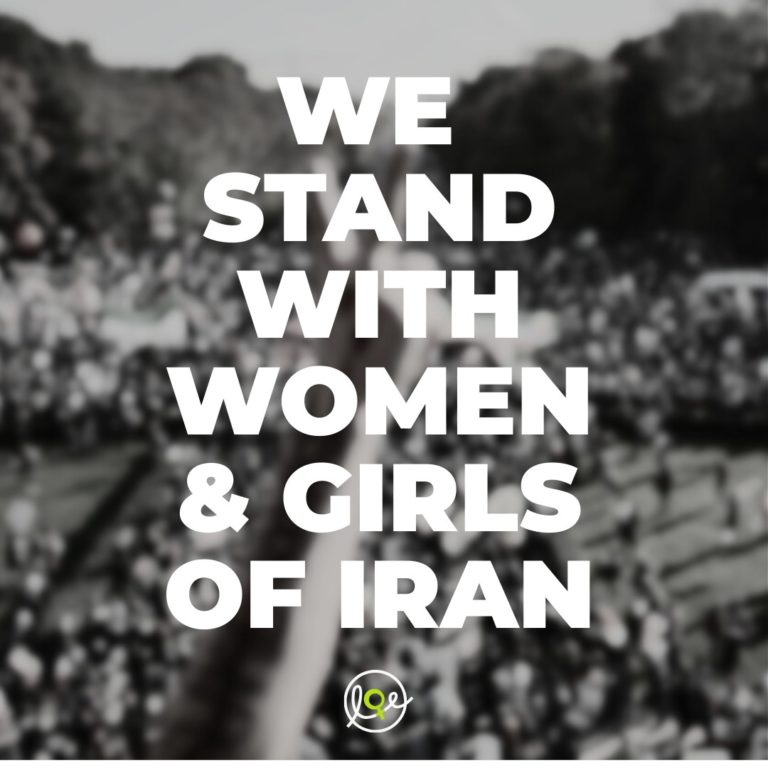In light of to the current interinstitutional negotiations at EU level on the proposal for a Directive on combating violence against women and domestic violence, the European Women’s Lobby releases its position towards the trialogue negotiations on the EU Directive on combating violence against women and domestic violence.
The European Women’s Lobby calls on all the Member States in the Council of the European Union to step up their efforts during the Trilogue negotiations to work towards a adopting a comprehensive and robust Directive, aligned with the proposal made by the European Parliament: The offence of rape must be included in the Directive.
From October 1st, the EU is finally a party to the Council of Europe Convention on preventing and combating violence against women and domestic violence, the Istanbul Convention. It is therefore fundamental to ensure that the Directive is fully aligned with the provisions of the Istanbul Convention. To this end, the European Women’s Lobby fully supports the proposal adopted by the European Parliament on 12 of July as it clearly enhances the proposal done by the European Commission.
The Directive must include a consent-based definition of rape as per the proposal of the European Commission- Article 5 and the amendments made by the European Parliament .
As further explained below , the proposal of the Council to delete article 5 – establishing a harmonised approach to the crime of rape- is outrageous and non admissible to women’s organisations. There are solid legal arguments to legislate on this matter as per the legal assessments made by the European Commission, the European Parliament, the Declaration made by four member states and reputed jurists across the EU. There is an urgent need to combat rape on a common basis, which is clearly not the case at the moment as many different approaches to the crime coexist (See latest GREVIO report) . According to EWL’s analysis 11 EU Member States still retain definitions of the offence of rape based on force as the main constituent element of the crime; and at least other four EU Member States can benefit from the Directive to improve their consent-based definitions. A common EU approach to the crime of rape is urgently needed to provide adequate protection to victims no matter where they are in the Union. EU action on this matter will bring tremendous added value to address a serious crime that is considered internationally as a war weapon and is at the very core of the violation of women’s fundamental rights. Due consideration should also be given during the trialogues to other forms of sexual exploitation and abuse as proposed by the European Parliament (sexual assault, sexual harassment in the world of work, forced sterilisation, forced marriage, female and intersex genital mutilation).
Furthermore, the final text of the Directive must include:
- stronger and effective rules on cyber violence against women, as per the European Parliament proposal) that addresses adequately all forms of violence against women (including cyberflashing) everywhere in the cyberspace with no excuses on freedom of expression. These articles have been inadmissibly watered down in the general approach adopted by the Council, as further explained in annex 1.
- a gender-sensitive approach (concretely the definition in recital 23c as per the European Parliament proposal) that is applied to all measures in the Directive on prevention, early identification, trainings to professionals, protection and support mechanisms; and the recognition of the expertise and role of women’s organisations in implementing this gender sensitive approach to ending violence against women (EP amendments to Articles 20, 27.1 and 27.2, and article 41). In the same line, the Directive must put in place:
- adequate protection mechanisms to avoid any further re-victimisation of women victims and their children (European Parliament amendments to Recital 6, Recital 30, Recital 31, Recital 55 and Article 23 first paragraph and Article 18.7) and
- ensure the provision of specialised protection and support services to victims accessible to all women victims taking into account additional vulnerability factors (European Commission article 16.5, European Parliament amendments to Article 13.5, 28.1; 35.1, 36.4)
- an EU Coordinator on violence against women (new Article 43.2 as per the European Parliament proposal).
- adequate collection of comparable data from administrative sources and population surveys at regular intervals should be put in place. We call to keep at a minimum the European Commission’s provisions in recitals 64 and articles 44).
This is a historic opportunity to contribute to put an end violence against women and girls in the EU, including rape and other key forms of sexual violence and cyberviolence. More than 122.000 citizens have signed our petition on “Make Europe a safe space for women and girls” calling on the EU leaders to enhance and swiftly adopt the Directive on combating violence against women and domestic violence and to criminalise all forms of sexual exploitation of women, including sexual violence and abuse over women’s sexuality, and all forms of online violence against women and girls. The signatories also call to set high standards for specialised support mechanisms to protect survivors and ensure their access to justice and reparation.
The European Women’s Lobby count on the Council and the Spanish Presidency commitment to this file and towards the swift adoption of a robust and enhanced legislative text that will support women across the EU to be protected against this pervasive form of women’s rights violation discrimination. We need more countries and countries France, Germany, Austria, Cyprus, Croatia, Denmark, Finland, Estonia, Latvia, Lithuania, Malta, Netherlands, Portugal, Romania, Sweden, Slovenia to be at the forefront to make this Directive to go through in the best possible way. Concretely, we urgently call these Member States to accept the proposals of the European Commission and the European Parliament to ensure that the article on rape defined as per the lack of freely given consent in the surrounding circumstances is included in the final proposal.
ANNEX I
Common approach across the EU to address a serious crime: cast into law the “affirmative approach” to define rape.
Rape is a serious crime that is at the very core of the violation of women’s fundamental rights, systematically used to silence women across Europe. While it is considered by the UN a war crime and a crime against humanity. Survivors face serious challenges to get the support, and are often revictimised and prevented to obtain justice and reparation. As observed by GREVIO in its latest report, there are still “high dropout rates at the investigation and prosecution stages, low conviction rates and attract low sentences. This state of affairs results in women losing trust in the criminal system, low reporting rates and a culture of impunity”.
This is why the general approach adopted by the Council in June absolutely is unacceptable to women’s organisations. Women across the EU do not understand the lack of political leadership and consideration to women’s rights. EWL strongly agrees with the Declaration made by Belgium, Greece, Italy and Luxembourg (that Ireland also supports) reminding that there is a solid legal basis for the EU to legislate on this matter.
There is no legal justification that impedes considering rape as a form of sexual exploitation against women, as per the Eurocrimes (Article 81.1 TFEU). The EU crime of sexual exploitation of women and children has already been used to criminalise sexual abuse of children in the Directive on combatting the sexual abuse and sexual exploitation of children and child pornography. Furthermore, the same reasons taken by the Council to consider Female Genital Mutilation as a form of sexual exploitation should apply to the offence of rape. Find here all the legal arguments provided by reputed lawyers across the EU in support of the inclusion of article 5 on the offence of rape under the Directive .
There is an urgent need to combat rape on a common basis, enforcing the principle of “only yes means yes” as per the standards of the Istanbul Convention and GREVIO recommendations, which is clearly not the case at the moment. Rape is as a criminal offence in all the EU member states, but the approach chosen to criminalise this offence varies widely. According to the analysis of the EWL Observatory on violence against women at least 11 EU Member States still retain forced-based definitions that do not offer adequate protection to victims. 6 other Member States that have made legislative amendments to move towards definitions of violence against women based on the lack of consent; could also benefit from the Directive to ensure that their legislation is fully aligned with the “affirmative approach” recommended by GREVIO and avoid shortfalls in victim’s access to protection, justice and reparation.
The text adopted by the Parliament is the best option as it proposes a consent-based definition of rape based on the affirmative approach, including the exact wording of the Istanbul Convention and expanding it (Article 5. formula 110 to 115). The Council should also give attention to the proposal of the European Parliament of including harmonised definitions of other forms of sexual related violence that amount to sexual exploitation on top of female genital mutilation: sexual harassment in the world of work, forced marriage and forced sterilization.
Reinforce the articles on online violence against women
In Europe, 9 million girls have experienced some kind of cyber violence by the time they are 15 years old. Online violence against women and girls denies women autonomy over their own bodies and voices in cyberspaces and has lifelong consequences in terms of mental and physical health and well-being. Considering the increasing relevance of tackling online violence against women, the EWL welcomes the Commission’s proposal to include in the Directive four types of cyber crimes (articles 7-10). Compared to the original text, we believe that the Parliament’s proposal reinforces the effectiveness and the scope of these articles whereas the Council’s proposal weakens them on different grounds:
- we support the wording “Other end-users” instead of “multiple of end-users” or “public” in article 7: We support the Parliament’s proposal to replace “multitude of end-users” as proposed by the Commission with “other end-users”. We believe that “other end-users” better tackle all forms of communications potentially harmful. The Council’s reference to the “public” instead drastically reduces the effectiveness and the scope of the article by making it difficult for it to tackle harmful sharing of intimate material with a limited number of people such as Whatsapp groups or subscription based porn platforms.
- we reject Council’s proposal to include “where such conduct is likely to cause serious harm” in article 7, 8: We strongly oppose the Council’s suggestion to limit the consideration of the non-consensual sharing of intimate material and the cyber-stalking as a criminal offences only when they are likely to cause serious harm to persons involved. These conducts are sufficiently offensive and invasive for the victim’s privacy and dignity. They should be criminalised no matter the effect. Such a requirement undermines the legal certainty for the victims leaving to the judge’s discretion the evaluation on whether these conducts are likely to cause “serious harm”.
- we support the wording “intimate material” instead of “sexual activities” or “sexually explicit activities ” in article 7b: We support the Parliament’s proposal to include in the scope of article 7b “intimate material” to target also for example AI generated nudes which risk not to be included under the Commission’s and the Council texts.
- we reject the references to exceptions linked to “Freedom of expression” and “freedom of the arts and science” in article 7: We do not support the Council proposal to introduce this exception. It is worrying to bring in the freedom of expression and the freedom of the arts to justify the non-consensual sharing of intimate material! This inclusion vanishes the effectiveness of this article by making it difficult for the victim to rebut to the arguments of the perpetrator. The notion of freedom of expression should not become a way to justify online hatred and gender discrimination.
- we call for the inclusion of cyberflashing in article 9: We welcome the Parliament’s proposal to introduce paragraph (ba) to article 9(I) tackling cyberflashing which is an increasingly harmful practice being able to cause significant distress, especially to young women. Similarly to flashing happening offline which is recognised as criminal offence in several Member States, cyberflashing should be considered a ‘non-consensual conduct of a sexual nature undermining victims right to sexual autonomy.
Ensure an adequate gender sensitive perspective, the provision of adequate specialist support services including SRHR and recognise the role of women’s specialist services.
The Directive to combat violence against women and domestic violence is a specific tool designed to adequately address the causes and consequences of and the specific protection needs of its victims. In order to ensure this, and in compliance with article 6 of the Istanbul Convention, there is a need to include a gender-sensitive perspective in the implementation and evaluation of the impact of the provisions in the Directive. Gender-sensitive policies are those that take into account the root causes of this type of violence, the specific context in which it takes place (including the perpetrator victim relationship, the dynamics of power and coercion over the victim, including vicarious violence, the risks factors and specific vulnerabilities throughout the process of violence), and the distinct consequences and impact of violence on women. This perspective should be incorporated in all prevention measures, protocols, trainings to professionals, risk and needs assessments, the establishment of protection mechanisms, guidelines, trainings and procedures system-wide for all frontline services. The lack of gender sensitive perspective or the gender neutrality in the implementation of the Istanbul Convention has had a set of negative consequences as highlighted by GREVIO and as per the EWL Observatory analysis. It will be crucial to avoid shortfalls in the Directive. this is why, EWL supports the amendments proposed by the European Parliament as follows.
We support the amendments proposed by the European Parliament as follows.
- We call for the inclusion of a definition of gender-sensitive perspective, proposed by the European Parliament (Recital 23- formule 32.C). A concrete definition of gender-sensitive perspective that will be fundamental to ensure adequate interpretation and transposition of the Directive. . In the same line we support amendments to Article 18 on specialised individual assessments to identify protection needs; and Article 19 to identify support needs; Recital 30 on gender sensitive risk assessment and Recital 50 on gender sensitive training to staff). We disagree with Council’s proposal to delete the references to discrimination based on sex. This reference should be kept throughout the text.
- We call to ensure the provision and the definition of adequate specialist support services to be tailored to the needs of victims of violence against women and the recognition of the role and expertise of women’s specialist services (EP amendments to Article 20 on referrals including women’s specialist services; and article 27.1 and 27.2 on specialist support services)
- We call to ensure that in determination of custody and contact or visitation rights of children, incidents of violence and the dynamics of abusive relationships are adequately addressed to avoid re-victimisation of children (vicarious violence) and women victims. In order to align with the Istanbul Convention, the exercise of any visitation or custody rights must not jeopardise the rights and safety of the victim or children and the interest of the child must prevail over a request from the violent parent for shared custody or rights of access. (EP amendments to Recital 6, Recital 30, Recital 31, Recital 55 and Article 23 first paragraph and Article 18.7).
- We call to ensure access to comprehensive medical care including sexual and reproductive health services to victims of sexual violence, including the clinical management of rape and access to safe and legal abortion (As per EP amendments to Recital 50 and Article 28.1)
- We call to ensure adequate prevention measures that include (feminist) comprehensive and age appropriate sexuality education; and measures to empower women and girls by increasing awareness of the concept of consent, to challenge harmful gender stereotypes, and reduce the demand for victims of sexual exploitation.(as per EP amendments to Article 36).
- We call to ensure access to protection and support mechanisms to all women, taking into account additional vulnerability factors; Concretely we reject Council’s proposal to delete article 16.5 on the prohibition from transferring personal data pertaining to the residence status of the victim to migration authorities. Adequate protection of migrant women, including undocumented migrant women and women with a dependent residence status or permit, should be granted. We call to keep to include the EP amendments to article 13.5 on aggravating circumstances; and Keep article 35.1 as per the proposal of the EP. Article 36.4 on targeted action to groups at higher risk of violence against women.
EU Coordinator on Violence against women
It is crucial the establishment of the “Union Coordinator on violence against women” with a strong political mandate and adequate resources. The Coordinator should be responsible for improving coordination and ensuring the coherence of the actions taken by, Union institutions, bodies, offices and agencies and Member States and international actors as regards combating violence against women and domestic violence and for developing and monitoring the implementation and transposition of Union policies to address violence against women.



